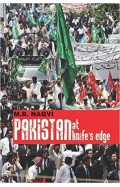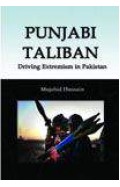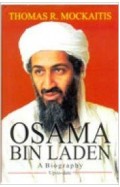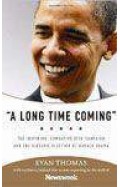- Home
- Book Bazaar RP Up To 60% Off
- RP - Current Affairs
- Whose America? - Culture Wars in the Public Schools
Whose America? - Culture Wars in the Public Schools
By: Jonathan Zimmerman
-
Rs 320.00
- Rs 400.00
- 20%
You save Rs 80.00.
Due to constant currency fluctuation, prices are subject to change with or without notice.
We are offering a high discount due to slightly damage.
What do America’s children learn about American history, American values, and human decency? Who decides? In this absorbing book, Jonathan Zimmerman tells the dramatic story of conflict, compromise, and more conflict over the teaching of history and morality in twentieth-century America.
In history, whose stories are told, and how? As Zimmerman reveals, multiculturalism began long ago. Starting in the 1920s, various immigrant groups―the Irish, the Germans, the Italians, even the newly arrived Eastern European Jews―urged school systems and textbook publishers to include their stories in the teaching of American history. The civil rights movement of the 1960s and ’70s brought similar criticism of the white version of American history, and in the end, textbooks and curricula have offered a more inclusive account of American progress in freedom and justice.
But moral and religious education, Zimmerman argues, will remain on much thornier ground. In battles over school prayer or sex education, each side argues from such deeply held beliefs that they rarely understand one another’s reasoning, let alone find a middle ground for compromise. Here there have been no resolutions to calm the teaching of history. All the same, Zimmerman argues, the strong American tradition of pluralism has softened the edges of the most rigorous moral and religious absolutism.
We are offering a high discount due to slightly damage.
What do America’s children learn about American history, American values, and human decency? Who decides? In this absorbing book, Jonathan Zimmerman tells the dramatic story of conflict, compromise, and more conflict over the teaching of history and morality in twentieth-century America.
In history, whose stories are told, and how? As Zimmerman reveals, multiculturalism began long ago. Starting in the 1920s, various immigrant groups―the Irish, the Germans, the Italians, even the newly arrived Eastern European Jews―urged school systems and textbook publishers to include their stories in the teaching of American history. The civil rights movement of the 1960s and ’70s brought similar criticism of the white version of American history, and in the end, textbooks and curricula have offered a more inclusive account of American progress in freedom and justice.
But moral and religious education, Zimmerman argues, will remain on much thornier ground. In battles over school prayer or sex education, each side argues from such deeply held beliefs that they rarely understand one another’s reasoning, let alone find a middle ground for compromise. Here there have been no resolutions to calm the teaching of history. All the same, Zimmerman argues, the strong American tradition of pluralism has softened the edges of the most rigorous moral and religious absolutism.
Whose America? - Culture Wars in the Public Schools
By: Jonathan Zimmerman
Rs 320.00 Rs 400.00 Ex Tax :Rs 320.00
Zubin Mehta: A Musical Journey (An Authorized Biography)
By: VOID - Bakhtiar K. Dadabhoy
Rs 840.00 Rs 1,050.00 Ex Tax :Rs 840.00
Myths Illusions and Peace: Finding a New Direction for America in the Middle East
By: Dennis Ross
Rs 1,095.00 Ex Tax :Rs 1,095.00
Operation Dark Heart: Spycraft And Special Ops On The Frontlines Of Afghanistan And The Path To Victory
By: Anthony Shaffer
Rs 1,800.00 Rs 2,250.00 Ex Tax :Rs 1,800.00
Anna Hazare: The Face Of Indias Fight Against Corruption
By: Pradeep Thakur
Rs 300.00 Ex Tax :Rs 300.00
How To Win A Cosmic War God Globalization And The End Of War
By: Reza Aslan
Rs 695.00 Ex Tax :Rs 695.00
A Long Time Comming: The Inspiring Combative 2008 Campaign And
By: Evan Thomas
Rs 795.00 Ex Tax :Rs 795.00
No similar books from this author available at the moment.
No recently viewed books available at the moment.
Zubin Mehta: A Musical Journey (An Authorized Biography)
By: VOID - Bakhtiar K. Dadabhoy
Rs 840.00 Rs 1,050.00 Ex Tax :Rs 840.00
Whose America? - Culture Wars in the Public Schools
By: Jonathan Zimmerman
Rs 320.00 Rs 400.00 Ex Tax :Rs 320.00














-120x187.jpg?q6)













